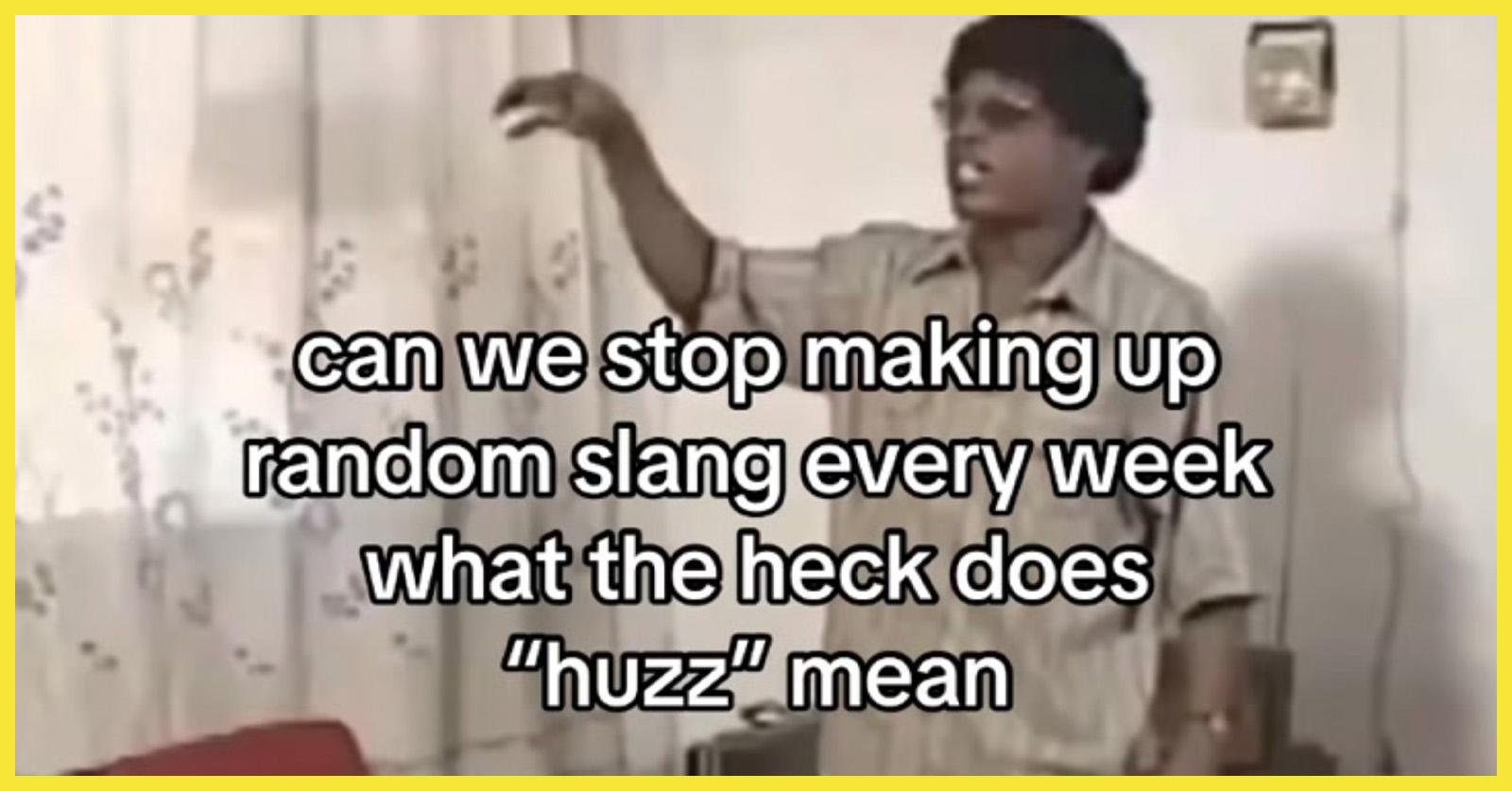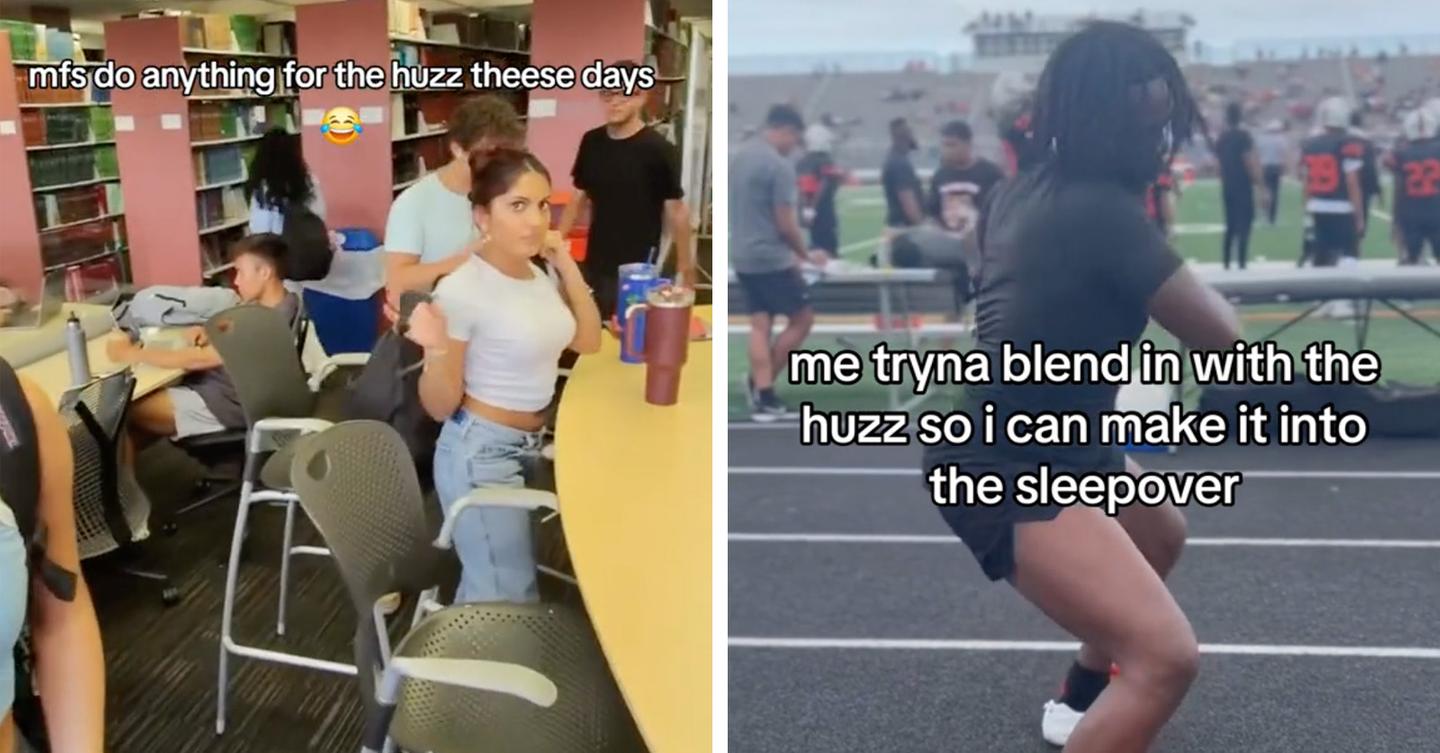What Does "Huzz" Mean? Slang Explained | Kai Cenat & TikTok
Is "huzz" just another fleeting internet fad, or does it represent a more significant shift in the way we communicate online? The evolution of "huzz" from a niche slang term to a widely recognized phrase underscores the dynamic and often unpredictable nature of online culture and the powerful influence of social media platforms.
The term "huzz" has recently emerged as a prominent example of how language evolves within online communities. Originating from the lexicon of internet slang, it is a term that has quickly gained traction, particularly among younger demographics, and has even spawned variations of its own. But what exactly does "huzz" mean, and how did it come to be such a prevalent part of online conversations? The origins of "huzz" can be traced back to the online world, specifically to the influence of popular streamers and content creators. One prominent figure is Kai Cenat, a popular Twitch streamer, who is credited with popularizing the term. "Huzz," in its most basic form, is a stylized way of referring to women. It is often used as a substitute for the more direct, and potentially offensive, term "hoes," which is also a slang term for a group of women. As such, "huzz" is frequently employed in contexts where the presence or pursuit of women is a central theme.
| Category | Details |
|---|---|
| Origin of Term | Popularized by Twitch streamer Kai Cenat |
| Meaning | Slang for "hoes," referring to a group of women |
| Usage | Often used in contexts involving social gatherings, parties, or online interactions where the attention of women is sought. Examples include phrases like "where the huzz at?" and "for the huzz." |
| Platform Popularity | Gained traction on platforms like TikTok, Twitter, and Instagram |
| Variations | Includes terms like "bruzz" and "gruzz" |
| Potential for Offense | Can be used in a degrading or generalizing manner, similar to the term "hoes," and may be considered offensive by some. |
| Wider Context | Reflects the rapid evolution of language within online communities, with a focus on "brainrot slang." |
| Example | "Anything for the huzz" - This phrase signifies a willingness to go to great lengths, often to gain attention or to entertain. |
| Reference | Reference Website |
The phrase "for the huzz" has also emerged as a common expression on platforms like TikTok. It generally signifies an action taken to attract the attention of women, often by doing something out of the ordinary. This phrase, and others like it, highlights the role of performativity in online interactions, where users often tailor their actions and language to fit in with, or gain attention from, specific audiences. On platforms like TikTok, where visuals are king, the phrase "for the huzz" is frequently used when someone does something to attract the attention of women they are attracted to. However, this context-dependent nature means that without context, "huzz" can be misconstrued or misinterpreted.
The rapid spread of "huzz" is a testament to the influence of social media and online influencers. The term has become deeply embedded in the vernacular of certain online communities. Moreover, its appearance on platforms like Twitter, Instagram, and, most prominently, TikTok highlights the ways in which language can move rapidly from niche subcultures to mainstream awareness. This trajectory is particularly visible in the context of TikTok, where the term's use is often tied to a particular kind of visual contentoften featuring young people doing things to seek approval or attention from women. In the vast and ever-changing landscape of internet slang, the precise meaning of a word can often shift based on its usage.
The evolution of "huzz" is closely linked to the rise of "brainrot slang," a category of internet language that includes terms that are, by design, quickly adopted and quickly discarded. The very nature of internet slang makes it challenging to provide a universally agreed-upon definition, as the meanings are subject to change over time. This is not to suggest that this is a negative aspect of the language; it merely highlights the adaptability and fluidity of language. The internet's ability to foster this type of slang underscores its function as a dynamic and ever-evolving cultural space.
The term also finds its place in a broader context of social commentary and cultural critique. The slang term "chopped huzz," for example, reflects a different application of the term in specific online contexts, where it is used to indicate that a female is seen as unattractive. It serves as an illustration of how internet slang can simultaneously reflect and reinforce existing social biases and prejudices. "Chopped huzz" is a term common on tiktok that refers to one or more females that someone finds unattractive. The term is a combination of "chopped" (meaning ugly) and "huzz," and is often abbreviated as "chuzz." Its usage is often tied to negative comments about a female's appearance.
The emergence of "huzz" and its associated terms is a reflection of the changing landscape of online communication. It also reveals a key aspect of the internet's linguistic dynamics. In the digital age, language is not static; it's an organic and continuously evolving entity. The term "huzz," while seemingly simple on the surface, encapsulates a range of phenomena, from the influence of online personalities to the ongoing interplay between culture, identity, and digital communication. It is therefore a good example of the rapidly changing nature of internet culture, and the ways in which language is adapting to reflect and shape new forms of social interaction.
In a different context, let's consider the platform Houzz.com, which is a hub for interior designers, remodelers, contractors, dealers, and homeowners. Established by a couple, Adi and Alon, in search of tools for their home remodeling project, Houzz.com has since grown into a vast platform that is a hub for interior designers, remodelers, contractors, dealers, and homeowners. It has become a site for architecture, interior and landscape design, and home improvement, attracting over 40 million users monthly. The platform facilitates connections between homeowners and housing professionals such as interior designers and contractors. This platform showcases another distinct example of how the internet creates new spaces for communities and connections. Furthermore, in the same way "hoes" has often been used to offend or, "huzz" and similar terms, has the potential to cross lines, it is crucial to note the power of words and their possible negative impacts.
Finally, the evolution and widespread adoption of "huzz" and related slang terms offer insights into the evolving relationship between language, identity, and digital culture. As new slang words emerge, spread, and eventually fade, they provide a snapshot of how language adapts to reflect the realities of online life. In an era of constant change, understanding the nuances of internet slang becomes increasingly important for anyone seeking to understand contemporary communication patterns. The very presence of terms like "huzz" illustrates the ways in which language can transform in response to the social dynamics of the digital world. The rapid adoption and evolution of these terms represent a key aspect of contemporary digital communication.


